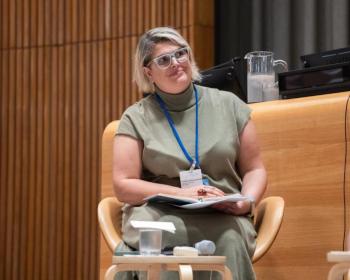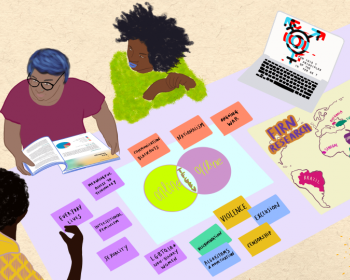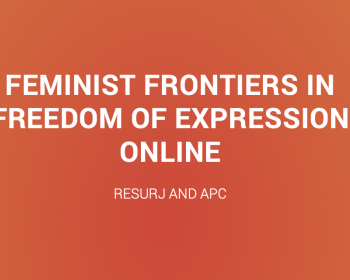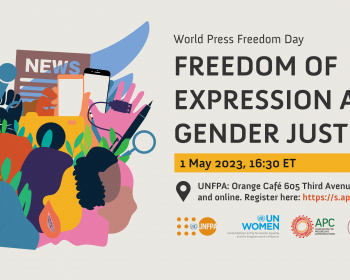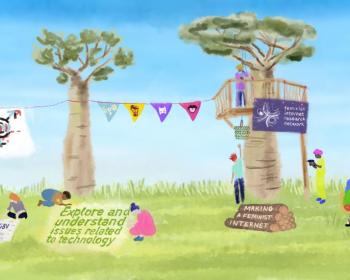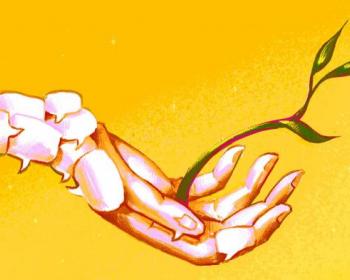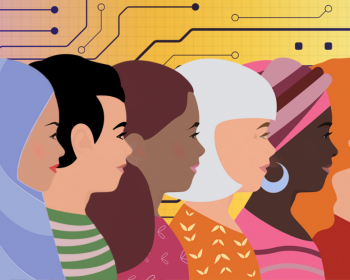online gender-based violence
Technology-facilitated gender-based violence (TFGBV) not only hurts women and girls, it impacts on society as a whole, making our societies less peaceful and safe and our democracies less diverse and plural. It is pervasive and constitutes both a cause and an effect of gender inequality.
This edition focuses on research conducted as part of the Feminist Internet Research Network (FIRN) initiative that showcases the interconnections of online gender-based violence with different countries' local contexts and everyday realities.
With the introduction of Threads by Meta, there's a need to question whether adding another social media platform to the list of online spaces contributes to the existing problems that women face on the internet, or if instead it is a step in the right direction.
This issue brief explores questions related to online expression for feminist and women’s rights activists, and draws upon the emerging trends and challenges. It also provides an introduction to useful emerging language and advocacy for the UN Commission on the Status of Women and beyond.
Join us at a special 30th anniversary event for World Press Freedom Day where freedom of expression rapporteurs will discuss the agreed conclusions of the Commission on the Status of Women plus recommendations of the 2022 Joint Declaration on Freedom of Expression and Gender Justice.
In response to the violence they face online, women censor themselves, stepping back from conversations online and sometimes exiting online spaces entirely. At times, however, they continue to speak and exist online but alter their speech and behaviour to comply with perceived social norms.
In spite of expanding awareness on online and technology-facilitated gender-based violence, there has only been an increase in the violence online in the last decade. Feminist research points to ways to address this ongoing challenge.
Sex workers in South Africa moved to the internet to seek clients as the offline opportunities dwindled due to the pandemic-induced lockdown. But they face previously unknown challenges with the prevalent online gender-based violence in the country.
This year's Commission on the Status of Women is the first ever to focus on gender equality and digital technologies. Here is APC's recommended reading list to help us all prepare for the discussions at CSW67.
The 67th session of the Commission on the Status of Women is the first in its history to have a specific focus on gender equality and digital technologies. APC will be bringing forward key issues around online gender-based violence, freedom of speech and more.

Association for Progressive Communications (APC) 2022
Unless otherwise stated, content on the APC website is licensed under Creative Commons Attribution 4.0 International (CC BY 4.0)



